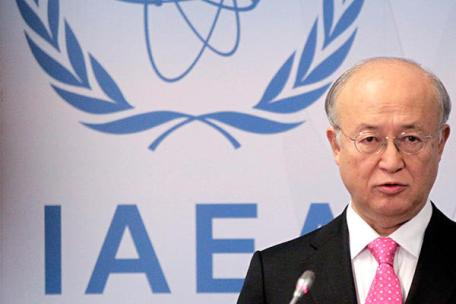Dr. Sadegh Rabbani, former First Deputy of the Atomic Energy Organization of Iran, writes that the return of the nuclear dossier to the IAEA would be a great success for Iran.
After a long silence in the negotiations process between Iran and the 5+1 countries, and following written letters between Saied Jalili and Catherine Ashton, principle agreements to hold negotiations were finally reached by both sides. Based on these agreements, only the time and place of negotiations should be determined. It appears that this coming Friday, the 13th of April, negotiations will be held in Istanbul, Turkey.
The background of negotiations between Iran and the 5+1 countries (permanent members of the Security Council and Germany) goes back to the time when the IAEA report on Iran’s nuclear activities was sent to the Security Council. The Security Council has so far issued 4 sanctions resolutions and requested the termination of Iran’s uranium enrichment program. Iran has ignored this request, for it considers these accusations, based on a deviation of Iran’s nuclear activities toward military objectives, baseless. It should be mentioned that the IAEA has not, hitherto, claimed that based on evidence Iran has deviated its nuclear programs towards military objectives. Political disputes regarding Iran’s nuclear activities have been going on since a decade ago. During this time, western countries have accused Iran of killing time for its secretive military goals and through increasing unilateral and multilateral international sanctions have exerted growing economic pressure on our country.
Israel’s threats to unilaterally attack Iran’s nuclear facilities are the latest threat which, due to US disagreement, has temporarily slowed down, for the US administration believes that the door of diplomacy to solve the nuclear issue of Iran has not yet been closed. The sum of these events has spread a shadow over the atmosphere of negotiations between Iran and the 5+1. Catherine Ashton, as coordinator of negotiations of those countries with Iran, has asked for more serious and clear discussions towards confidence-building between both parties.
Although the official and apparent incentive of these negotiations is to study Iran’s nuclear program, nuclear issues will certainly not be the only subjects discussed in these negotiations. Numerous other issues will be proposed by Iran and the other negotiating countries. Exit plans from challenges in the nuclear program, recognition of Iran’s rights to the peaceful use of nuclear energy, continuation of enrichment for peaceful purposes (to 5% for nuclear power plants and 20% for research reactors) and on the other hand, Iran’s cooperation on more transparency of its past, present, and future activities. Iran’s transparency in its nuclear activities must ultimately be positively and satisfactorily reflected in future reports of the general director of the IAEA. Such reports could take Iran’s nuclear dossier out of the Security Council and return it to the IAEA, which would be a great success for our country. This is because the return of Iran’s nuclear dossier to the IAEA would mean its return to a normal process, removal of the sanctions resolutions of the Security Council, which would mean other sanctions would be unjustified. Considering the numerous questionable issues on Iran, the upcoming negotiations will obviously not have the capacity to solve them, at least in a short period of time. But at the same time, this meeting can be a new beginning for very sensitive negotiations on all issues of interest to both sides. The presence of representatives from Russia, China, and important European countries in these negotiations will lead to the discussion of issues much more expanded than Iran’s nuclear matter, and, therefore, successful solutions of those subjects will be more difficult. But if one intends to limit the issues related to Iran and accusations against the country, the issues related to the security of the strategic Strait of Hormoz, double standards in dealing with liberation movements in Syria and Bahrain, terrorism and beyond-border activities of the Revolutionary Guards in these movements, narcotics trafficking, and in a more expanded step, a nuclear weapon-free Middle East,
must also be discussed.


